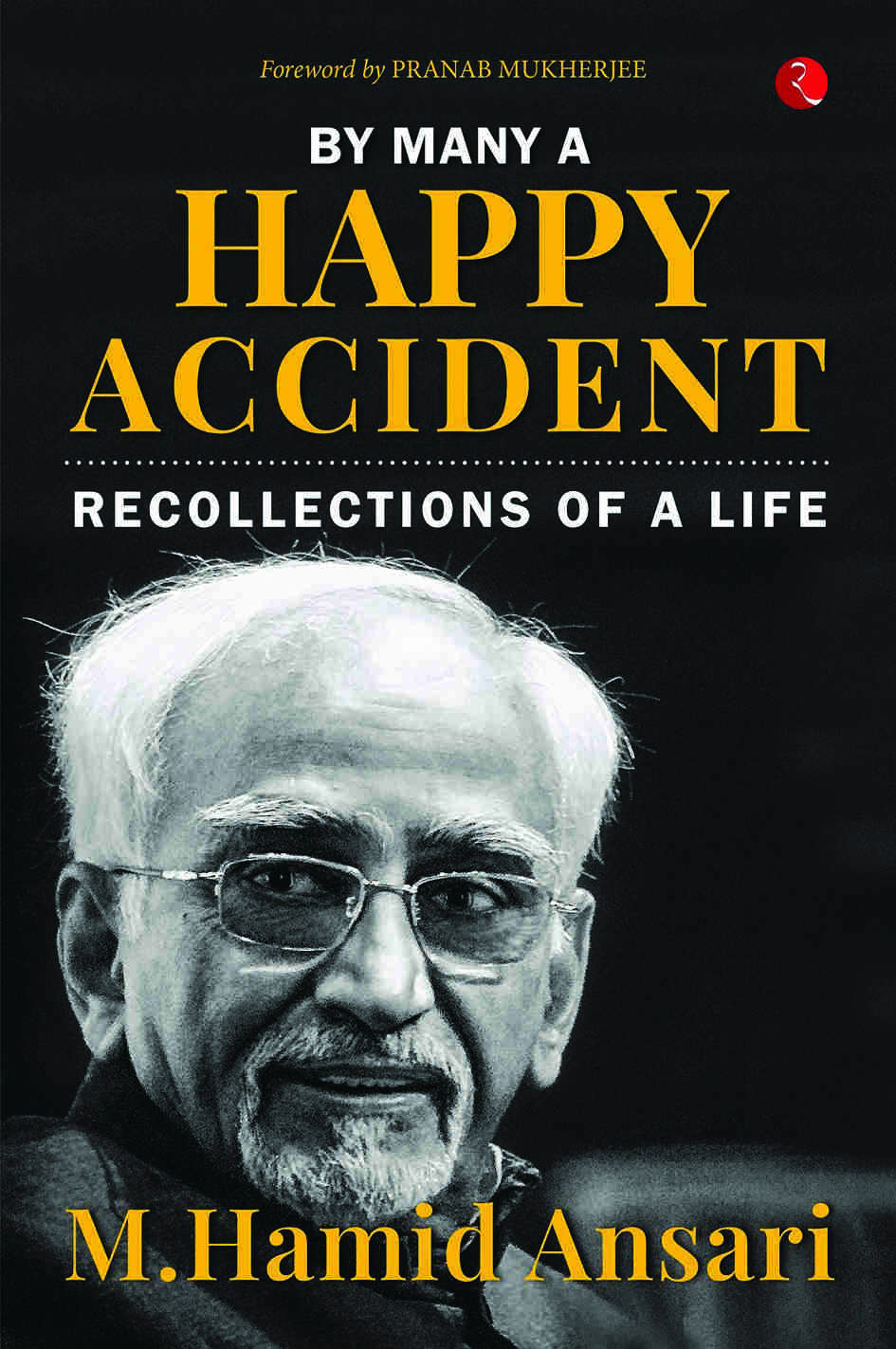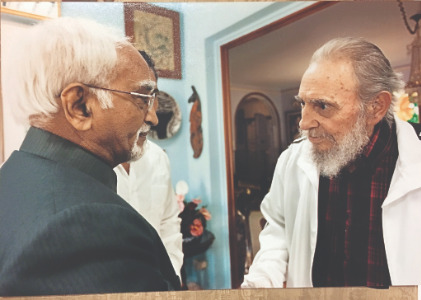"By Many a Happy Accident" | On a formidable pulpit
Fortuitous or not, By Many a Happy Accident is an account of a life of unplanned happenings that took M. Hamid Ansari away from his preferred fancy for academia to professional diplomacy and then be co-opted in public life and catapulted to the second highest office in the land for two consecutive terms; Excerpts:
Author: M. Hamid Ansari
Publisher: Rupa Publications
Roger Sherman, a founding father of the American Constitution, had observed that ‘if the vice president were not to be President of the Senate, he would be without employment’. Record would show that most holders of the office crafted a role for themselves.
The ceremonial and functional duties of the vice president are considerable. The record of daily engagements testifies to it. Visits to states and discussions with governors and CMs, public-speaking engagements, foreign visits and calls by governors, ministers of the central government, senior-most officers of the government, foreign ambassadors and visiting foreign dignitaries on official visits to India—each had its own flavour. And of course, there were many friends and old colleagues who wished to see an otherwise normal human being in a ceremonial cage! I adjusted to it; less so Salma, who still continued to be herself, ‘a bird in flight’ as she once put it many years back.

I called on former president R. Venkataraman and PMs Gujral and Vajpayee. Some friends who came calling included Philip Talbot from New York, who presented me a copy of his book An American Witness to India’s Partition, which has been described by B.R. Nanda as ‘the best contemporary account of the critical decade’, Prof. Robin Jeffrey from Melbourne and my Austrian colleague in New York, Ambassador Herbert Traxl, who was as much an Austrian as an Indian!
Amongst callers from abroad in early months were German chancellor Angela Merkel, who enquired about the recipe for accommodation of diversity in India, the Head of Iran’s Guardian Council, Grand Ayatollah Ahmad Jannati, whom I had met in Tehran and the Deputy PM of Oman, who attributed the lack of foreign investment in India to ‘too much bureaucracy’. I asked him if he would say the same about other large-scale management systems, including that of the Almighty! Other callers from West Asia in later years included former foreign minister of Iran, Dr Ali Akbar Velayati and Prince Turki bin Faisal of Saudi Arabia. In July 2013, I had a very interesting discussion with US Vice President Joe Biden. Another interesting visitor was an old friend from Australia, former foreign minister Gareth Evans.
UNIVERSITIES AND RESEARCH INSTITUTIONS
The ex officio functions of the vice president include being the chancellor of the universities of Delhi, Punjab and Pondicherry (now Puducherry) and president of the Indian Council of World Affairs (ICWA). The duties of the chancellors of universities, under our present system, are purely formal and ceremonial, since substantive supervisory powers of central universities rest with the President of India. The chancellor is expected to be present on ceremonial occasions and his role therefore, as I described once to the VC of the University of Delhi is ‘to be seen infrequently and heard even less’.
In November 2007, I was invited by the Academic Research Centre of the University of Delhi to inaugurate the Third International Congress of the Asian Political and International Studies Association. Its focus on Asia has helped to explore specific areas of Asian experience. The first Congress focused on development, democracy and security; the second on aspects of governance and the current one on Asian concepts of justice. I was enthused by the theme and intrigued by it. The concept of justice is integral to social well-being; for this reason, it must be reiterated at every possible opportunity. It is also in the category of universal values, rather than being location-specific. Talk of an Asian concept may, therefore, convey an impression that there is something
specific by way of value addition or value subtraction. This, presumably, is not intended.
Surveying the concept of justice down the ages and in different societies, I opined that selective good and selective justice is a recipe for trouble. A conceptual framework for justice, therefore, has practical implications and can only be viable if it is inclusive— at the societal, national and international levels. Asian societies, drawing upon their extensive heritage, undoubtedly would come to this conclusion and conceptualize it appropriately. I concluded that the modern concept of justice received international recognition in the Universal Declaration of Human Rights of 1948. It proclaimed ‘a common standard of achievement for all peoples and all nations’, asserted equality before the law and equal protection of the law. These were amplified in other international covenants.
Excerpted with permission from By Many a Happy Accident; published by Rupa Publications



